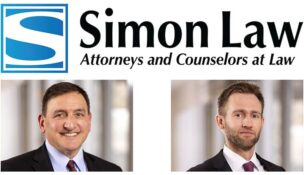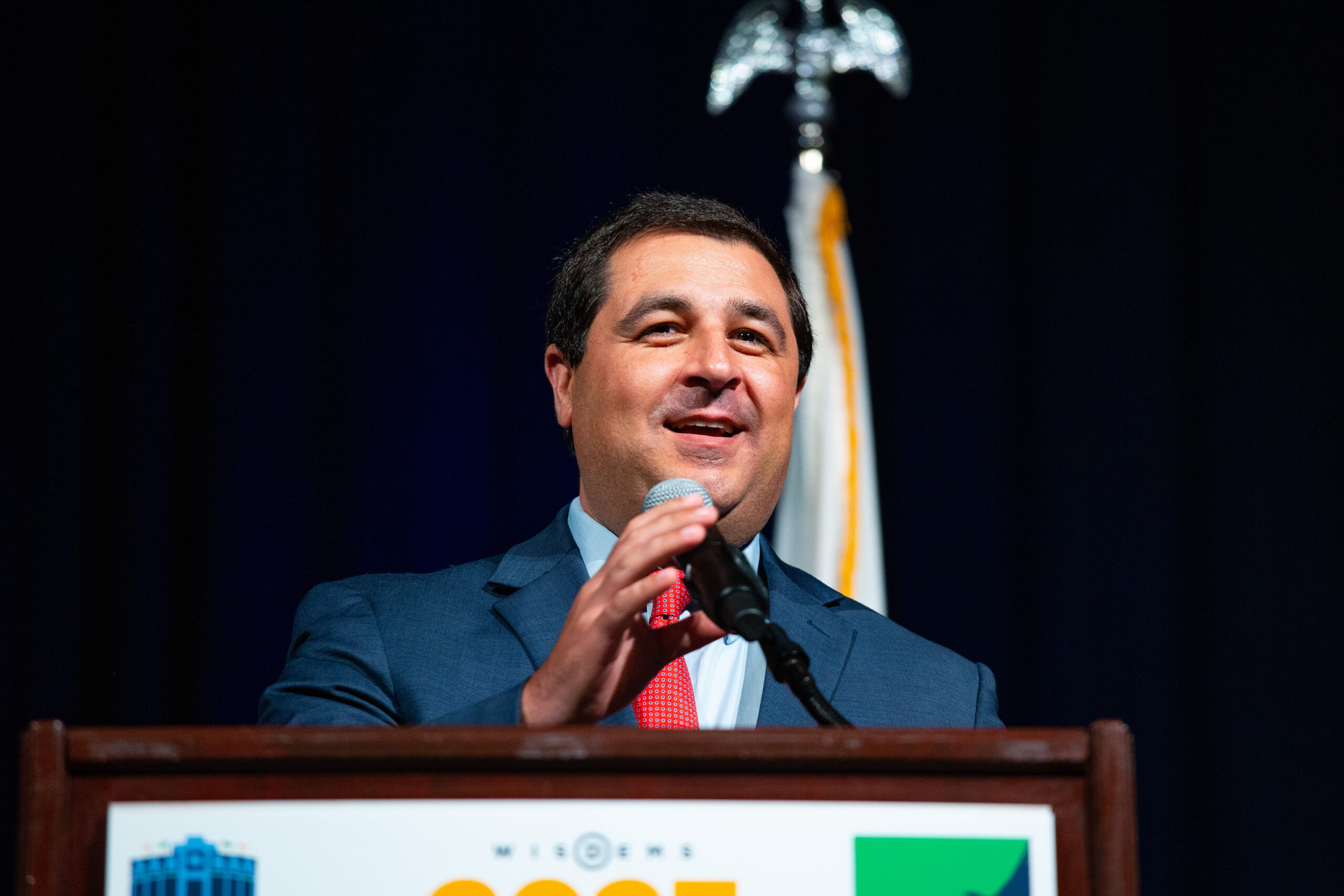Court reinstates former lawyer’s license 17 years after revocation
By: Michaela Paukner, [email protected]//June 3, 2020//
Court reinstates former lawyer’s license 17 years after revocation
By: Michaela Paukner, [email protected]//June 3, 2020//
The Wisconsin Supreme Court on Wednesday conditionally reinstated a former attorney’s law license about 17 years after it was revoked. The decision, however, was not unanimous, and the justices took issue with the referee’s report in Elvis Banks’ case.
Banks, who lives in Brown Deer according to State Bar of Wisconsin records, had his license revoked in 2003 after pleading no contest to 42 counts of professional misconduct related to 20 separate representations. The revocation came less than six years after Banks was admitted to practice law in Wisconsin.
The court’s opinion said his violations included dishonesty, fraud, deceit, misrepresentation, trust-account violations, failure to provide competent representation and knowing disobedience of an obligation under the rules of a tribunal.
In addition to pleading no contest, the opinion said Banks filed a petition for consensual license revocation because he admitted he couldn’t defend himself against 17 additional counts of misconduct in another seven client matters.
Banks petitioned for reinstatement in 2009, but his petition was denied for failing to satisfy the requirements for reinstatement. In 2018, Banks again filed for reinstatement, but he was met with resistance from the Office of Lawyer Regulation.
The OLR said it opposed his reinstatement for various concerns, including Banks’ failure to pay more than $11,000 in costs from his prior disciplinary and reinstatement cases and $900 in restitution to the Wisconsin Lawyers’ Fund for Client Protection.
After Banks testified at a public hearing about his case, the OLR said it no longer opposed his reinstatement. In a September 2019 report, the referee in Banks’ case recommended that the court conditionally grant his reinstatement, writing that Banks has “applied himself diligently to get his life back on track” since his license was revoked.
Banks has been working as a school teacher and security guard, but he’s kept up with his continuing education requirements, according to the referee. Banks said he doesn’t plan to practice law in Wisconsin upon reinstatement, but rather will use the reinstatement to help him become licensed in Tennessee or Mississippi. The referee said Banks also made an agreement with the OLR to pay $300 per month toward his outstanding costs.
The referee proposed that the court reinstate Bank’s license with the conditions that he continue making payments to the OLR and that he annually provide the OLR with a summary of his finances.
Court’s decision
The state Supreme Court majority decided to reinstate Banks’ license as long as he complies with the payments to the OLR until his costs are paid off, meets with the OLR within 30 days of reinstatement to reach a payment plan for the $900 of restitution and annually files a financial statement to the OLR until he satisfies his costs and restitution obligations.
Banks also has to pay the full costs of the reinstatement proceeding, which were $4,205.80 as of September.
The justices said the referee’s report complicated their review of the matter. The majority opinion criticized the referee’s report for failing to thoroughly consider a number of reinstatement criteria, while instead focusing on the money Banks’ owed. However, the majority opted not to remand the matter for additional findings to avoid additional costs and delay.
“Although it would have been far better practice for the referee to have made specific findings and conclusions regarding each of the reinstatement requirements, informed by the parties’ agreement that they have been met, the lack of such explicit findings and conclusions does not require that we remand this matter to the referee,” the majority opinion read. “The parties and the referee concur that Attorney Banks has satisfactorily shown that he has met the reinstatement criteria.”
Kelly, R. Bradley dissent
Justice Dan Kelly, joined by Justice Rebecca Bradley, dissented because of the issues with the referee’s report. Kelly wrote that he had no way of knowing whether Banks met the reinstatement criteria because of deficiencies in the report.
Kelly pointed to a lack of fact-finding about Banks’ understanding of bar standards, his moral character and whether his resumption of practice would be harmful to the administration of justice and the public. He said Banks “obliquely touched on” some of the issues in his written statements, but an adequate showing of understanding wasn’t reflected in the public hearing.
“I do not doubt the OLR genuinely believes that Mr. Banks has satisfied the prerequisites to reinstatement of his law license. Nor do I have information affirmatively suggesting Mr. Banks should not be reinstated,” Kelly wrote. “But we don’t reinstate attorneys based on the OLR’s beliefs or the absence of negative information in the record.”
Kelly and Bradley would have remanded the petition to the referee for further fact-finding.
Banks thankful, humbled by decision
In an email to the Wisconsin Law Journal, Banks said he was grateful and humbled that the state Supreme Court reinstated his law license. He wrote the following statement explaining what led up to his revocation and his plans for his future practice:
“I grew up a poor boy in post-Jim Crow Mississippi. I worked my way through college and law school to become an attorney. Literally one day before I officially graduated from law school, my wife committed suicide and left me with a three-year-old son. A brother had died a month earlier. My father died four months later. My mother died soon thereafter. During this time, I married another woman to help raise my son. A month after I got married, she packed his clothes and put them at the back door. My son was four-years-old.
“As a new attorney, I should not have opened my own business. I did not have the experience to practice law as a solo practitioner or to operate a business. I made plenty of mistakes. All I ever wanted was to be accorded the same fundamental fairness as other sanctioned attorneys. I read where attorneys who had gone to prison for years and had defrauded clients out of millions were suspended. One attorney went to prison for the second time and was suspended for less than two years. I was never accused of a crime. I pleaded “No Contest” to each and every allegation leveled against me, although I did not agree with many of the allegations. All I ever wanted was to return to the South and be allowed the opportunity to redeem myself. Although it has been nearly 17 years, I am thankful the Wisconsin Supreme Court has granted me the opportunity to practice law again.” Follow @“WLJreporter”
Legal News
- UW-Madison pro-Palestine protesters spark debate over free speech laws
- DEA to reclassify marijuana in a historic shift
- Wisconsin opens public comment on constitutional amendment regarding election officials
- Court upholds Milwaukee police officer’s firing for posting racist memes
- FCC fines wireless carriers millions for sharing user locations without consent
- Wisconsin Supreme Court scheduled to hear oral arguments in absentee voting case
- Attorney General Kaul joins multistate coalition to defend U.S. EPA’s light-duty vehicle emission standards
- State Bar of Wisconsin names election winners
- Protests erupt on college campuses throughout Midwest, and U.S. over war in Gaza
- Newly filed report with federal court seeks Havana Syndrome transparency
- Questions of transparency, leadership responsibility linger over State Bar trust
- Firm demands $4.3M in dispute with Wisconsin client
WLJ People
- Power 30 Personal Injury Attorneys – Russell Nicolet
- Power 30 Personal Injury Attorneys – Benjamin Nicolet
- Power 30 Personal Injury Attorneys – Dustin T. Woehl
- Power 30 Personal Injury Attorneys – Katherine Metzger
- Power 30 Personal Injury Attorneys – Joseph Ryan
- Power 30 Personal Injury Attorneys – James M. Ryan
- Power 30 Personal Injury Attorneys – Dana Wachs
- Power 30 Personal Injury Attorneys – Mark L. Thomsen
- Power 30 Personal Injury Attorneys – Matthew Lein
- Power 30 Personal Injury Attorneys – Jeffrey A. Pitman
- Power 30 Personal Injury Attorneys – William Pemberton
- Power 30 Personal Injury Attorneys – Howard S. Sicula











